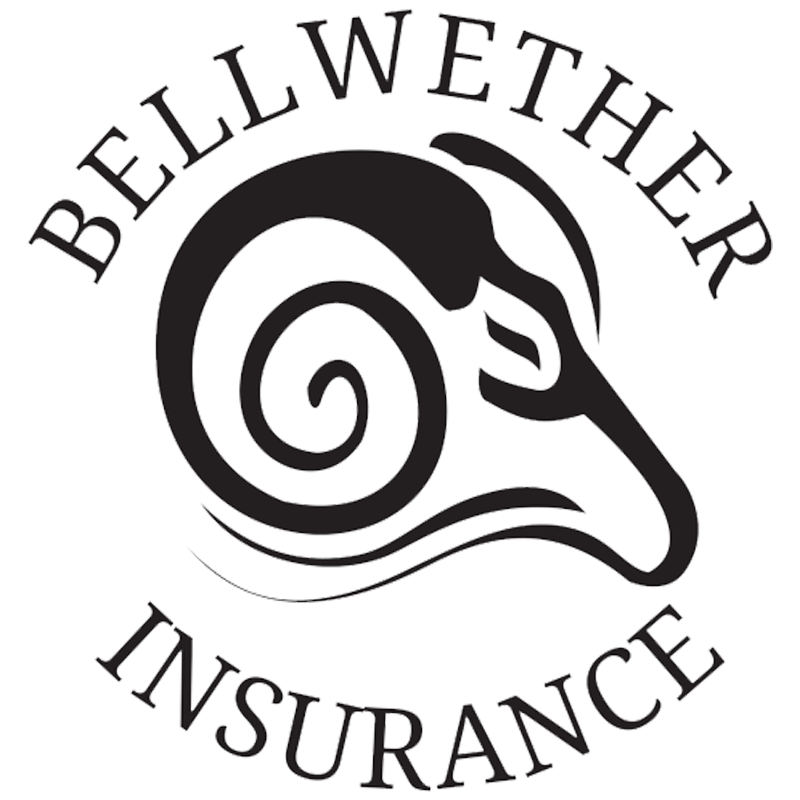Ohio Endocrinology Business Insurance

Index
Contact Us
Phone
216-600-2828
Location
100 N. Center Street PO Box 627 LaGrange, OH 44050
Operating an endocrinology practice in Ohio involves navigating a complex landscape of patient care and business management. One critical aspect that often gets overlooked is the importance of having the right business insurance. This article aims to provide comprehensive insights into the various types of insurance necessary for endocrinology practices in Ohio, the specific risks involved, and how to choose the best coverage for your needs.
Understanding the Basics of Business Insurance
Business insurance is designed to protect your practice from financial losses due to unforeseen events. These events can range from natural disasters to legal claims. For endocrinology practices, having the right insurance is crucial not only for compliance but also for ensuring the longevity of the business.
Types of Business Insurance
There are several types of business insurance that endocrinology practices should consider. Each type serves a unique purpose and addresses different risks associated with running a medical practice.
- General Liability Insurance: This is the most basic form of insurance that covers claims related to bodily injury, property damage, and personal injury. For instance, if a patient slips and falls in your office, this insurance would cover the associated costs.
- Professional Liability Insurance: Also known as malpractice insurance, this coverage is essential for any medical practice. It protects against claims of negligence, errors, or omissions in the provision of medical services.
- Property Insurance: This insurance covers damage to your office space and equipment due to events like fire, theft, or vandalism. Given the specialized equipment used in endocrinology, this coverage is particularly important.
Importance of Business Insurance for Endocrinology Practices
Endocrinology practices face unique challenges and risks that can lead to significant financial repercussions. Having comprehensive business insurance not only safeguards against these risks but also enhances the credibility of the practice. Patients are more likely to trust a practice that is adequately insured, knowing that their health and safety are prioritized.
Moreover, the landscape of healthcare is continually evolving, with increasing regulatory requirements and patient expectations. Endocrinologists must navigate complex legal frameworks and ensure compliance with health regulations, which can vary by state. This complexity makes it even more essential to have robust insurance coverage that can adapt to changing laws and protect against potential lawsuits stemming from regulatory violations. Additionally, with the rise of telemedicine, endocrinology practices are also exposed to new risks associated with digital patient interactions, making cyber liability insurance an increasingly important consideration to protect sensitive patient information.
Furthermore, investing in business insurance can provide peace of mind for practice owners and their staff. Knowing that there is a safety net in place allows healthcare providers to focus on delivering high-quality care without the constant worry of financial repercussions from unexpected events. This focus on patient care can lead to better outcomes and higher satisfaction rates, ultimately contributing to the overall success of the practice. As the healthcare environment continues to change, staying informed about the latest insurance options and tailoring coverage to meet the specific needs of an endocrinology practice is vital for long-term sustainability.

Specific Risks Faced by Endocrinology Practices
Endocrinology practices deal with a variety of patient conditions, including diabetes, thyroid disorders, and hormonal imbalances. Each of these areas presents its own set of risks, which can impact both patient care and the business itself. The complexity of hormonal systems means that endocrinologists often navigate intricate patient histories and multifaceted treatment plans, making the stakes particularly high in this specialty.
Medical Malpractice Risks
Medical malpractice is a significant concern in any healthcare setting. Endocrinologists must be vigilant in their diagnosis and treatment plans, as misdiagnosis or improper treatment can lead to severe patient outcomes. This not only affects patient health but can also result in costly legal battles. The nuances of endocrine disorders, such as differentiating between types of diabetes or recognizing the subtle signs of thyroid dysfunction, require a high level of expertise and attention to detail. Furthermore, the evolving nature of medical guidelines and treatment protocols means that endocrinologists must stay current with the latest research to minimize their risk of litigation.
Cybersecurity Risks
With the increasing reliance on electronic health records (EHR), endocrinology practices are also at risk of cyberattacks. Data breaches can expose sensitive patient information, leading to legal consequences and damage to the practice's reputation. Cyber liability insurance can help mitigate these risks by covering costs associated with data breaches and cyberattacks. Additionally, practices must implement robust cybersecurity measures, such as regular software updates, employee training on phishing scams, and the use of secure networks, to protect against unauthorized access. The potential fallout from a data breach can be severe, not only in terms of financial loss but also in the erosion of patient trust, which is vital for the ongoing success of any medical practice.
Choosing the Right Insurance Provider
Selecting the right insurance provider is as crucial as choosing the right insurance policies. The provider should understand the specific needs of an endocrinology practice and offer tailored solutions. A well-chosen provider not only protects your practice but also contributes to its growth and sustainability, allowing you to focus on patient care without the constant worry of financial pitfalls.
Evaluating Insurance Providers
When evaluating potential insurance providers, consider the following factors:
- Experience in Healthcare: Choose a provider with a proven track record in insuring medical practices, particularly endocrinology. This experience often translates into a deeper understanding of the unique risks associated with your specialty, which can lead to more relevant coverage options.
- Customer Service: Good customer service is essential for addressing claims and inquiries promptly. Look for providers with positive reviews and testimonials. A responsive customer service team can make a significant difference when navigating the complexities of claims, ensuring that you have support when you need it most.
- Coverage Options: Ensure that the provider offers a range of coverage options that can be customized to meet the specific needs of your practice. This flexibility is particularly important in the rapidly evolving field of healthcare, where new treatments and technologies may require adjustments to your insurance coverage.
Understanding Policy Terms
Insurance policies can be complex and filled with jargon. It is crucial to understand the terms and conditions of any policy before making a commitment. Pay attention to coverage limits, deductibles, and exclusions to avoid surprises during a claim. Additionally, consider seeking clarification on any terms that seem ambiguous or overly technical; a reputable provider should be willing to explain their policies in clear, understandable language.
Moreover, it can be beneficial to consult with a professional insurance advisor who specializes in healthcare. They can provide insights into the nuances of various policies and help you navigate the landscape of insurance options available to your endocrinology practice. This expert guidance can be invaluable, particularly when it comes to understanding how different policies may impact your financial stability and patient care capabilities in the long run.
Cost Considerations for Endocrinology Business Insurance
The cost of business insurance can vary significantly based on several factors, including the size of the practice, location, and the specific coverage options chosen. Understanding these factors can help in budgeting for insurance expenses.
Factors Influencing Insurance Costs
Several factors can influence the cost of insurance premiums for an endocrinology practice:
- Practice Size: Larger practices with more employees and higher patient volumes may face higher premiums due to increased risk exposure.
- Claims History: A history of claims can lead to higher premiums, as insurers may view the practice as a higher risk.
- Location: The geographical location of the practice can also impact costs. Areas with higher rates of litigation or crime may result in higher premiums.
Budgeting for Insurance
When budgeting for insurance, it is essential to consider not only the premiums but also potential out-of-pocket costs such as deductibles. Setting aside a portion of revenue for insurance can help ensure that the practice is prepared for any financial obligations that arise.
Additionally, it is wise to review insurance policies annually to ensure they align with the evolving needs of the practice. As the patient demographic changes or as new treatments and technologies are adopted, the coverage may need to be adjusted to mitigate risks effectively. Engaging with a knowledgeable insurance broker who specializes in healthcare can provide valuable insights into the most suitable coverage options and help identify any gaps in existing policies.
Moreover, investing in risk management strategies can also play a crucial role in controlling insurance costs. By implementing safety protocols, staff training programs, and regular audits, practices can reduce the likelihood of claims, which may lead to lower premiums over time. Ultimately, a proactive approach to risk management not only safeguards the practice but also enhances its reputation within the community, fostering trust among patients and stakeholders alike.
Common Misconceptions About Business Insurance
Many business owners hold misconceptions about insurance that can lead to inadequate coverage or financial loss. Addressing these misconceptions is vital for ensuring proper protection.
“I Don’t Need Insurance Because I’m Small”
One common misconception is that small practices do not need insurance. In reality, small businesses can be just as vulnerable to lawsuits and other risks as larger entities. Without insurance, a single claim could jeopardize the financial stability of a small practice. For instance, a small restaurant might think that their size protects them from legal action, but a slip-and-fall incident could lead to significant medical bills and legal fees that they may not be able to afford. Additionally, many clients and partners prefer to work with businesses that are insured, as it demonstrates a level of professionalism and responsibility.
“All Insurance Policies Are the Same”
Another misconception is that all insurance policies offer the same coverage. In truth, policies can vary widely in terms of what they cover and the limits of that coverage. It is crucial to compare policies and understand the specifics before making a decision. For example, a general liability policy may cover bodily injury and property damage, but it may not include coverage for professional errors or omissions. This is especially important for service-based businesses, where the risk of being sued for negligence is higher. Business owners should take the time to consult with insurance professionals to tailor their coverage to their specific needs and industry risks.
Furthermore, understanding the nuances of deductibles, exclusions, and endorsements can make a significant difference in the level of protection a business receives. Some policies may seem cheaper at first glance but could leave gaps in coverage that could be financially devastating in the event of a claim. By investing time in understanding the details of various policies, business owners can make informed choices that safeguard their assets and ensure continuity in the face of unforeseen challenges.
Legal Requirements for Endocrinology Practices in Ohio
In Ohio, certain types of insurance are legally required for medical practices. Understanding these requirements is essential for compliance and for protecting the practice from legal repercussions.
Mandatory Insurance Types
Ohio law mandates that medical practitioners carry professional liability insurance. This requirement is in place to protect patients and ensure that they have recourse in the event of malpractice. Additionally, practices may be required to have workers' compensation insurance if they have employees. This coverage is vital not only for the protection of the staff but also for the financial stability of the practice itself, as it can cover medical expenses and lost wages for employees who are injured on the job.
Moreover, practices should also consider obtaining general liability insurance, which protects against claims of bodily injury or property damage that may occur on the premises. This type of insurance can be particularly important for endocrinology practices, where patients may visit for various procedures and consultations. By securing comprehensive insurance coverage, practices can mitigate risks and foster a safer environment for both patients and staff.
Staying Compliant with Regulations
Compliance with state regulations is crucial for the operation of any medical practice. Regularly reviewing insurance policies and staying informed about changes in the law can help ensure that the practice remains compliant and protected. It is advisable for practices to engage with legal counsel or compliance experts who specialize in healthcare regulations to navigate the complexities of state laws effectively.
Additionally, implementing a robust training program for staff on compliance issues can further enhance a practice's adherence to legal requirements. This training should cover topics such as patient privacy laws, billing practices, and the proper handling of medical records. By fostering a culture of compliance within the practice, staff members will be better equipped to recognize potential legal issues and address them proactively, ultimately contributing to the overall integrity and reputation of the endocrinology practice.

Conclusion
In conclusion, having the right business insurance is a vital component of running a successful endocrinology practice in Ohio. From protecting against medical malpractice claims to safeguarding against cybersecurity threats, comprehensive coverage is essential for mitigating risks and ensuring the longevity of the practice.
By understanding the types of insurance available, the specific risks faced by endocrinology practices, and the importance of choosing the right provider, practitioners can make informed decisions that protect their business and their patients. Ultimately, investing in the right insurance is not just a financial decision; it's a commitment to providing safe and reliable care.


